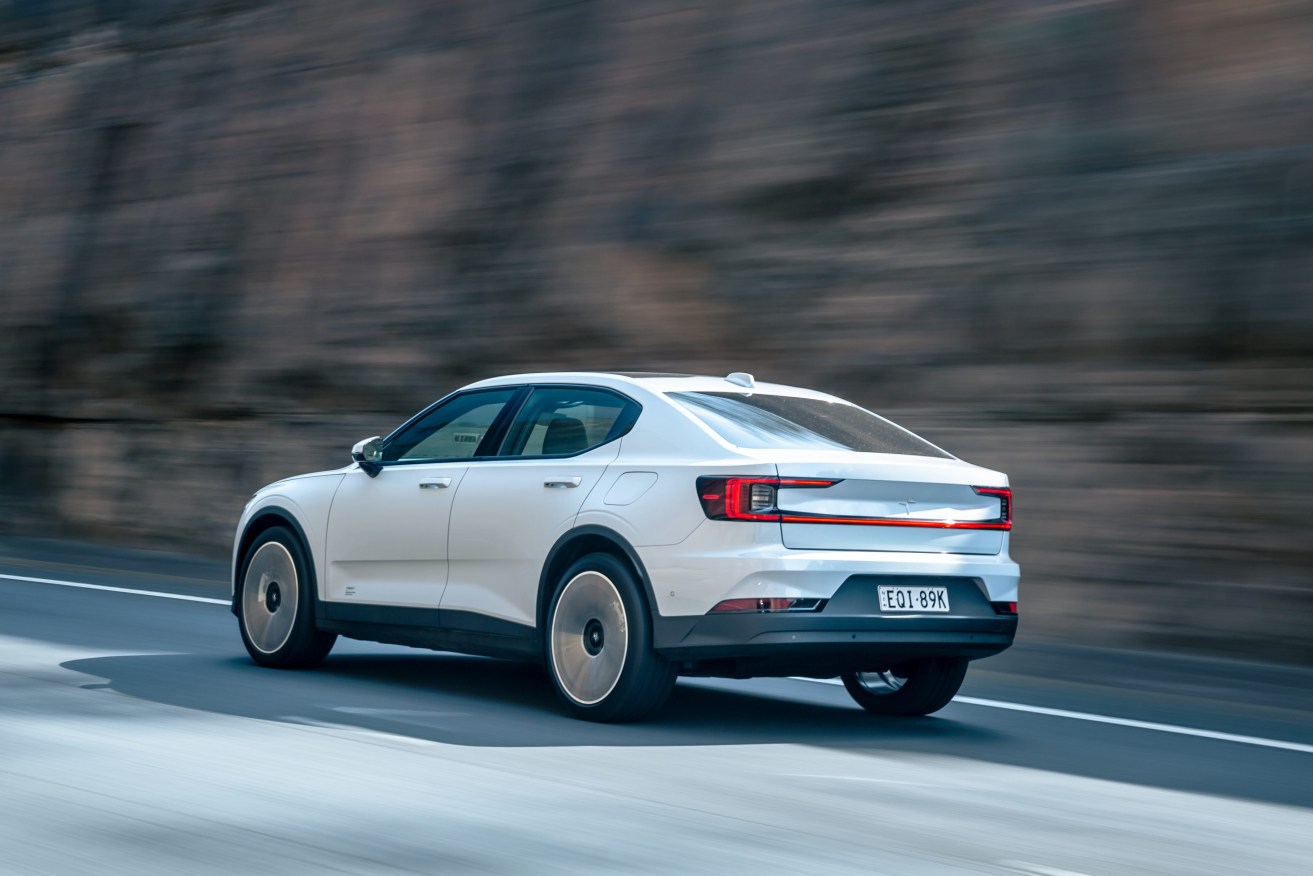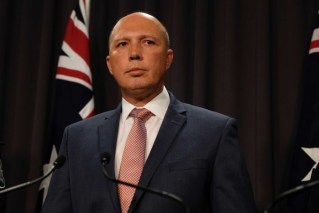European emissions laws may force Aussies to buy electric cars, like them or not
Australian motorists may have little choice other than to buy an electric vehicle within 12 years, experts say, after Europe effectively banned the sale of petrol and diesel cars by 2035.

Volvo offshoot Polestar, will benefit from the changes to the Luxury Car Tax. (AAP image)
The European Union formally approved plans to cut car emissions by 100 per cent in 2035, following similar restrictions in countries including China, Japan, Canada and Hong Kong.
The move, passed late on Tuesday, will place significant financial penalties on petrol and diesel cars within 27 European countries, effectively ending sales of new fossil fuel vehicles.
Motoring industry experts said the restriction would ultimately impact the cars sold in Australia and the country urgently needed new policies to ensure it was not forced to accept vehicles no other country would allow.
The European Union’s new laws, which were approved by 340 votes in favour to 279 against, will require all cars and vans sold in 2035 to be zero-emission vehicles.
Automakers will also be required to cut car emissions by 55 per cent in 2030.
Only car brands producing fewer than 1000 vehicles a year will be exempt from the new law.
European Parliament member Jan Huitema said introducing a zero-emission deadline would help manufacturers plan innovation and put downward pressure on the price of electric vehicles.
“Purchasing and driving zero-emission cars will become cheaper for consumers and a second-hand market will emerge more quickly,” he said.
Electric Vehicle Council policy head Jake Whitehead said while the European law stopped short of banning new petrol cars, it would make them significantly harder to find and more expensive to buy, potentially adding $17,000 to the price of an average car.
But he said the restrictions could shock some Australian car buyers, who did not realise petrol and diesel vehicles could be removed from the market in just over a decade.
“We know even America, with a very similar vehicle market to us, is targeting 50 per cent EV sales by 2030,” he said.
Australian Electric Vehicle Association president Chris Jones said even though some motorists may not have “cottoned on”, many car makers would simply stop producing cars with internal combustion engines within the next decade, before any ban.
Local buyers, he said, would have little choice but to invest in an electric vehicle for their next car.
“A lot of jurisdictions around the world have realised that 2035 is actually a pretty conservative position for ending the sale of petrol or diesel vehicles,” he said.
Whitehead said the European law would also increase pressure on the federal government to introduce a fuel efficiency standard to ensure the latest motoring technology made it to Australia and the country did not only receive vehicles unable to be sold elsewhere.
“The risk here is that if Australia doesn’t choose to stay in line with other similar economies like the US and Europe, we will end up aligned with developing economies and get the same vehicles they’re getting which could mean lower safety standards,” he said.












